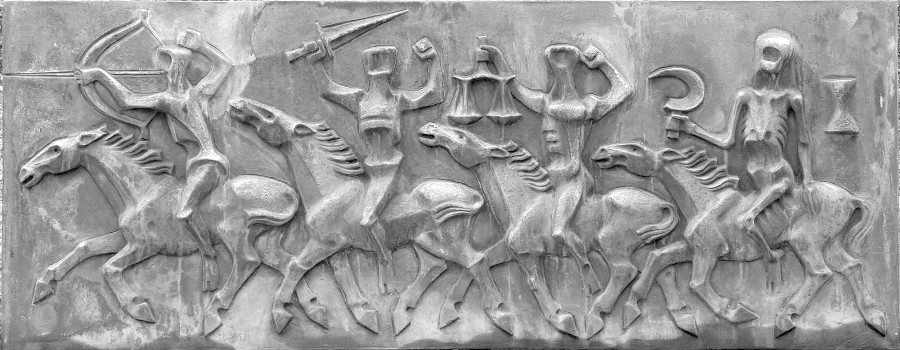
Christian eschatology and judgement
This website hosts the MPhil thesis of Raymond Bromham, A more charitable Christian eschatology. This Thesis covers attempts from the Victorian era to the present day to mitigate the problem of eternal punishment with particular attention to the teaching of T.R. Birks and its influence.
Download the Thesis (pdf)Submitted By RAYMOND GWYN BROMHAM in 2000 for the degree of M.Phil through the department of Religious and Theological Studies in the University of Wales College, Cardiff.
The central purpose of this study is an assessment of the development of the Christian doctrine of eternal punishment from the early Victorian age to the present day. This has been done with a view to examining any drift from the traditional view, noting in particular how far this movement away from orthodoxy has been part of the thinking of those of an evangelical persuasion.
The growth of other views such as universalism and conditional immortality (annihilationism) is traced, the latter being discovered as the increasingly more acceptable alternative for evangelical Christians than the conventional teaching of eternal conscious suffering for those believed to be finally rejected. Of the many nineteenth-century figures involved in this debate, T. R. Birks has been selected for closer examination, because of the somewhat unique character of his ideas on this doctrine and because of their disturbing impact on the Evangelical Alliance of his day. Similarly, the assessment of twentieth-century developments has focused on Henri Blocher, who, like Birks, has been noted for the rare view that those ultimately lost will acquiesce, despite their eternal suffering, in the righteousness of God, their judge.
However, in the conclusion, one’s findings incline to conditional immortality as the more acceptable alternative view of eternal punishment, especially in the context of biblical teaching, theodicy and the promotion of the gospel. This opinion is endorsed by the fact many scholars and leaders of the evangelical sector of the church strongly favour the conditionalist stance.
Introduction
In his discussion of Christian beliefs, the celebrated astronomer, Fred Hoyle, expresses his exasperation over the way Christians approach life after death. In their anxiety to avoid the notion that death is the complete end of our existence, they suggest what is to me an equally horrible alternative...
Read MoreChapter 1
The Victorian Debate: Everlasting Punishment.
The development of the doctrine of final judgement mainly in the Victorian age...
Chapter 2
T. R. Birks : (1). Victory: Hell Without Evil.
A novel attempt to make eternal punishment palatable...
Chapter 3
T. R. Birks: (2). “This Painful Yet Interesting Controversy”.
The influence of this bold theory and reactions to it...
Chapter 4
Twentieth Century Developments Particularly the Consolidation of Conditional Immortality among Evangelicals.
As we move into the twentieth century, we are confronted by the same three options of universalism, conditional immortality and eternal torment...
Chapter 5
Henri Blocher: Birks Redivivus?
As already noted, an important facet of the problem of the doctrine of eternal punishment is the continuation or survival of evil...